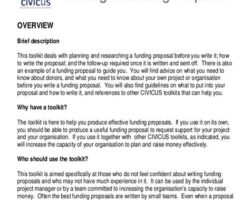Establishing Clear Goals and Expectations
Setting clear goals and expectations is essential for any successful organization or team. When everyone involved understands what needs to be accomplished and what is expected of them, it creates a sense of direction and purpose. Clear goals help individuals and teams prioritize their work, stay focused, and measure progress. Additionally, well-defined expectations promote accountability and ensure that everyone is on the same page regarding roles, responsibilities, and performance standards.
One way to establish clear goals and expectations is through regular communication. Team leaders should regularly communicate with their team members to discuss project objectives, clarify expectations, and address any concerns or questions. This can be done through team meetings, one-on-one discussions, or even through written communication, like emails or project management tools.
Another effective strategy is to set SMART goals, which are specific, measurable, achievable, relevant, and time-bound. By setting goals that are specific and measurable, everyone will have a clear understanding of what needs to be accomplished. Ensuring that goals are achievable and relevant to the team’s objectives will help motivate team members and increase their commitment. Finally, setting a deadline or time frame for achieving the goal provides a sense of urgency and helps track progress.
Implementing a system to track and evaluate progress is also crucial in establishing clear goals and expectations. This can be done through regular check-ins or progress reports, where team members can update their progress, discuss any challenges they are facing, and receive guidance or support if needed. Using tools like project management software or shared documents can also help keep everyone informed about the overall progress and ensure transparency.
In conclusion, establishing clear goals and expectations is fundamental for any successful team or organization. It provides a sense of direction, promotes accountability, and helps measure progress. Through regular communication, setting SMART goals, and implementing a system to track progress, teams can ensure that everyone is aligned, motivated, and working towards a common objective. By establishing clear goals and expectations, teams can increase their productivity and achieve their desired outcomes.
Fostering a Culture of Respect and Openness
In today’s fast-paced and competitive work environment, fostering a culture of respect and openness is crucial for the success of any organization. It not only creates a positive and inclusive atmosphere but also enhances productivity and collaboration among team members. Building a culture that values and appreciates differences can lead to better employee engagement, retention, and overall success.
One of the key components of fostering a culture of respect and openness is promoting open communication. Encouraging employees to speak up and share their ideas, concerns, and opinions creates a sense of belonging and empowerment. This can be achieved by establishing open-door policies, organizing regular team meetings, and providing anonymous feedback channels. By actively listening to employees and valuing their input, leaders can create an environment where everyone feels heard and respected.
Another important aspect of fostering a culture of respect and openness is promoting diversity and inclusion. Embracing diversity involves recognizing and appreciating the unique qualities and backgrounds that each individual brings to the table. This can be achieved by implementing inclusive hiring practices, promoting diversity training and workshops, and creating employee resource groups. When employees feel valued and included, they are more likely to contribute their best work and thrive in their roles.
In addition, fostering a culture of respect and openness involves encouraging and recognizing the contributions of all team members. Creating a culture where individuals feel appreciated for their efforts and accomplishments not only boosts morale but also inspires others to perform at their best. Recognizing and celebrating achievements can be done through regular employee recognition programs, performance evaluations, and public acknowledgments. By highlighting the value of each individual, leaders can cultivate an environment of trust and mutual respect.
In conclusion, fostering a culture of respect and openness is essential for any organization that aims to succeed in today’s competitive landscape. By promoting open communication, embracing diversity and inclusion, and encouraging and recognizing the contributions of all team members, leaders can create an environment where individuals feel valued and empowered. Investing in cultivating a culture of respect and openness not only enhances employee engagement and productivity but also paves the way for long-term success.
Encouraging Peer Feedback and Constructive Criticism
Creating a culture that values peer feedback and constructive criticism is essential for personal and professional growth. In any work or academic setting, being open to receiving feedback from others allows for improvement and development. However, it is equally important to foster an environment where individuals feel comfortable and safe giving feedback to their peers. In this blog post, we will explore the benefits of encouraging peer feedback and constructive criticism, as well as strategies to promote its effectiveness.
The Benefits of Peer Feedback
Peer feedback plays a crucial role in personal and professional growth. When individuals receive feedback from their peers, they gain different perspectives and insights that can help them identify blind spots or areas for improvement. Peer feedback also allows individuals to learn from the experiences and expertise of others, expanding their own knowledge and skills. Moreover, receiving feedback from peers promotes a sense of collaboration, trust, and mutual respect within a team or community.
Strategies to Promote Constructive Criticism
Encouraging constructive criticism requires creating an environment that supports open and honest communication. Here are some strategies to foster this culture:
- Lead by example: As a leader or authority figure, demonstrate the importance of constructive criticism by seeking feedback from others and openly discussing your own areas for improvement.
- Establish guidelines: Clearly communicate expectations and guidelines for giving and receiving feedback. Emphasize the importance of focusing on specific actions or behaviors rather than personal attacks.
- Provide training: Offer training or workshops on effective feedback and communication skills. Equip individuals with the tools and techniques to deliver constructive criticism in a respectful and supportive manner.
- Encourage active listening: Emphasize the importance of active listening when receiving feedback. Encourage individuals to ask clarifying questions, seek understanding, and appreciate diverse perspectives.
- Create feedback channels: Establish formal or informal feedback channels where individuals can provide anonymous feedback if desired. This can help alleviate concerns about potential conflicts or judgments.
The Role of Support and Resources
To truly encourage peer feedback and constructive criticism, it is important to provide resources and support for individuals. This includes access to educational materials or workshops related to effective communication and feedback, as well as mentorship or coaching opportunities to develop these skills further. Additionally, creating a supportive environment where individuals feel comfortable taking risks and sharing their ideas fosters a culture of openness and growth.
Implementing Effective Communication Strategies
Implementing Effective Communication Strategies
Effective communication is the cornerstone of any successful organization. It allows for the exchange of ideas, information, and feedback, enabling teams to work cohesively and efficiently. However, without proper strategies in place, communication can easily break down, leading to misunderstandings, conflicts, and decreased productivity. In this blog post, we will explore the importance of implementing effective communication strategies and discuss some key techniques for fostering clear and open lines of communication within your team.
One essential aspect of effective communication is establishing clear and concise goals and expectations. When everyone is on the same page and understands what is expected of them, it creates a sense of direction and purpose. By clearly articulating goals, objectives, and deadlines, team members can align their efforts towards a common objective. This helps to avoid confusion and ensures that everyone is working towards the same goal.
A culture of respect and openness is vital for effective communication to thrive. When team members feel valued and respected, they are more likely to express their thoughts and ideas openly. This encourages a free flow of information and promotes collaboration. It is important to create an environment where individuals feel safe to voice their opinions, knowing that they will be heard and acknowledged.
Encouraging peer feedback and constructive criticism is another effective communication strategy. By providing opportunities for team members to offer feedback and suggest improvements, you foster a culture of continuous learning and growth. Constructive criticism helps individuals identify areas for development and offers insights for improvement. It is important to emphasize the importance of providing feedback in a respectful and constructive manner to avoid causing offense or discouragement.
- Establish clear goals and expectations: Clearly define the objectives and deadlines to ensure everyone is aligned and working towards the same purpose.
- Foster a culture of respect and openness: Create an environment where team members feel valued and comfortable expressing their thoughts and ideas.
- Encourage peer feedback and constructive criticism: Provide opportunities for team members to offer feedback and suggest improvements to foster continuous learning and growth.
| Effective Communication Strategies | Benefits |
|---|---|
| Establishing clear goals and expectations | Alignment and focus |
| Fostering a culture of respect and openness | Open communication and collaboration |
| Encouraging peer feedback and constructive criticism | Continuous learning and improvement |
In conclusion, implementing effective communication strategies is crucial for fostering a productive and harmonious working environment. By establishing clear goals and expectations, fostering a culture of respect and openness, and encouraging peer feedback and constructive criticism, you can significantly enhance communication within your team. Remember, effective communication is a continuous process that requires constant effort and attention. By prioritizing communication and implementing these strategies, you can reap the many benefits of improved collaboration, increased productivity, and overall team success.
Nurturing a Growth Mindset
Nurturing a Growth Mindset is essential for personal and professional development. A growth mindset is the belief that one’s abilities and intelligence can be developed with dedication and hard work. It is the understanding that we can continually learn and grow, regardless of our current skill level or knowledge. When individuals have a growth mindset, they are more likely to embrace challenges, persist in the face of setbacks, and see failure as an opportunity for growth.
Nurturing a growth mindset starts with creating an environment that encourages curiosity, exploration, and learning. By providing opportunities for individuals to engage in new experiences and learn from their mistakes, we can help foster a growth mindset. This can be done through offering diverse learning resources, such as books, online courses, or workshops, that allow individuals to expand their knowledge and skills.
In addition to providing resources, it is important to promote a culture of support and encouragement. By celebrating small victories and acknowledging effort, individuals are more likely to develop a positive attitude towards learning. This can be done through peer feedback and constructive criticism, where individuals have the opportunity to learn from each other and improve their skills.
Another important aspect of nurturing a growth mindset is promoting collaboration and teamwork. By working together on projects and sharing ideas, individuals can learn from each other’s strengths and perspectives. This not only enhances their own learning but also creates a sense of community and shared goals.
In summary, nurturing a growth mindset is crucial for personal and professional development. By creating an environment that values learning, encourages curiosity, and promotes collaboration, individuals are more likely to embrace challenges, persist in the face of setbacks, and see failure as an opportunity for growth. By fostering a growth mindset, we can unlock our full potential and achieve our goals.
Promoting Collaboration and Teamwork
Promoting Collaboration and Teamwork is essential for any successful organization. When team members work together effectively, they can accomplish more and create a positive work environment. Collaboration allows individuals to share ideas, skills, and perspectives, leading to innovative solutions and improved decision-making. Teamwork, on the other hand, fosters a sense of unity and cooperation among team members, ensuring that everyone is working towards a common goal.
There are several strategies that can be employed to promote collaboration and teamwork within an organization. One way is to establish clear goals and expectations for the team. By clearly defining what needs to be achieved, team members can align their efforts and work towards a common objective. It is important to ensure that these goals are measurable and time-bound, as this provides a sense of purpose and urgency.
Another strategy is to foster a culture of respect and openness. When team members feel valued and respected, they are more likely to feel comfortable sharing their ideas and opinions. This creates a safe and supportive environment where collaboration can thrive. Managers and team leaders play a crucial role in promoting this culture by actively encouraging open communication and appreciating diverse perspectives.
Encouraging peer feedback and constructive criticism is also a powerful way to promote collaboration and teamwork. When team members provide each other with feedback, they can learn from one another and improve their skills. This feedback should be constructive and specific, focusing on areas of improvement rather than personal attacks. By creating a feedback loop, team members can continuously grow and develop together.
In addition to these strategies, effective communication is key to promoting collaboration and teamwork. Regular team meetings, project updates, and clear communication channels are essential for keeping everyone on the same page. It is important to encourage active listening and ensure that everyone has the opportunity to contribute. Tools and technologies that facilitate communication and collaboration, such as project management software and collaborative platforms, can also be employed.
To further nurture collaboration and teamwork, providing resources and support for writers is crucial. This could include training programs, workshops, and access to relevant resources and tools. By investing in the development of team members, organizations can empower them to work together more effectively and become key contributors to the team’s success.
In conclusion, promoting collaboration and teamwork is essential for the success of any organization. By establishing clear goals and expectations, fostering a culture of respect and openness, encouraging peer feedback and constructive criticism, implementing effective communication strategies, and providing resources and support for writers, organizations can create an environment where collaboration thrives. When team members work together effectively, they can achieve great things and contribute to the overall growth and success of the organization.
Providing Resources and Support for Writers
When it comes to writing, every writer needs a strong support system to thrive. Providing resources and support for writers is vital in fostering their growth and success. With the right guidance and tools, writers can enhance their skills and produce high-quality content. In this blog post, we will explore various ways in which resources and support can be offered to writers, helping them unleash their full potential.
First and foremost, access to a well-stocked library is crucial for writers. A library provides a wealth of knowledge, inspiration, and research material. Whether it’s a physical space or an online database, writers need access to a diverse range of books, articles, and reference materials to expand their understanding of different topics and writing styles.
Additionally, workshops and writing communities play an essential role in providing resources and support for writers. These platforms create an environment where writers can connect, share ideas, and receive constructive feedback. Workshops, led by experienced writers or writing coaches, offer valuable insights, tips, and techniques to improve writing skills. Writing communities, both online and offline, provide a sense of belonging and motivation by bringing together like-minded individuals who can offer encouragement and advice.
Online resources and tools are also immensely beneficial for writers. The internet is a treasure trove of resources, from online courses and webinars to writing prompts and research databases. Websites and platforms dedicated to writing offer a plethora of resources, such as grammar guides, style guides, and writing exercises. Moreover, technology has made it easier for writers to access writing software and tools that facilitate the writing process, from brainstorming to editing. These resources not only save time but also enhance the quality of the writer’s work.
In conclusion, providing resources and support for writers is essential in nurturing their talent and ensuring their growth. Access to a well-stocked library, participation in workshops and writing communities, and using online resources and tools are just a few examples of how writers can receive the necessary support. By investing in these resources, we empower writers to push boundaries, explore new horizons, and create impactful content.
Frequently Asked Questions
Question: How can establishing clear goals and expectations help improve writing skills?
Answer: Establishing clear goals and expectations provides writers with a clear direction and focus. It helps them understand what they need to achieve and provides them with a framework to work within. This clarity helps writers stay on track and can improve the quality and effectiveness of their writing.
Question: How does fostering a culture of respect and openness benefit writers?
Answer: Fostering a culture of respect and openness creates a supportive environment where writers feel comfortable expressing their thoughts and ideas. It encourages collaboration and allows for constructive feedback, which can lead to improvements in writing. It also helps writers feel valued and appreciated, which can boost their confidence and motivation.
Question: Why is peer feedback and constructive criticism important for writers?
Answer: Peer feedback and constructive criticism provide writers with different perspectives and insights into their work. It allows them to identify strengths and weaknesses in their writing and provides opportunities for growth and improvement. By receiving feedback from their peers, writers can learn from each other and gain valuable insights that they may not have otherwise considered.
Question: What are some effective communication strategies for writers?
Answer: Effective communication strategies for writers include being clear and concise in their writing, using appropriate language and tone for their audience, and organizing their thoughts and ideas in a logical and coherent manner. Writers should also be receptive to feedback and willing to engage in discussions and conversations about their work.
Question: How does nurturing a growth mindset benefit writers?
Answer: Nurturing a growth mindset encourages writers to view challenges as opportunities for growth and improvement. It helps them embrace feedback and criticism as learning opportunities and motivates them to persist and persevere in their writing journey. A growth mindset also fosters a desire to continually learn and develop new skills, leading to continued growth as a writer.
Question: How can promoting collaboration and teamwork improve writing skills?
Answer: Promoting collaboration and teamwork allows writers to engage with different perspectives and ideas. It encourages brainstorming, sharing of knowledge, and learning from others. Collaborating with others can help writers expand their creativity, gain new insights, and enhance their writing skills through shared experiences and collective effort.
Question: What resources and support can help writers improve their writing?
Answer: Providing writers with resources such as writing guides, reference materials, and online tools can greatly assist in improving their writing skills. Additionally, offering support through workshops, writing groups, and mentorship programs can provide writers with guidance and feedback, helping them refine their writing abilities and overcome challenges they may face.





